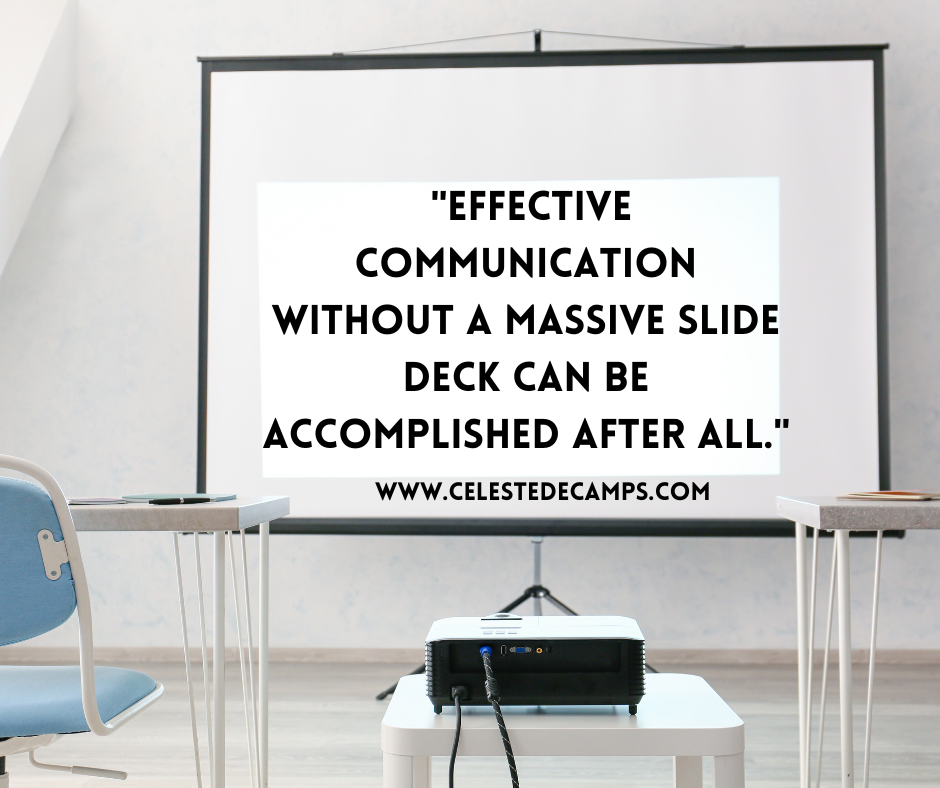We've all heard the term 'Death by PowerPoint,' yet too many people still rely on a top-heavy slide deck to convey their information. I recently conducted a workshop about rehabilitating our presentation skills to combat the dull, uninspiring, and forgettable messages due to not being better prepared. As an audience member, I don't want to sit and be read to. Instead, send the report in an email. One participant worried that important information wouldn't be delivered if she eliminated any of her two hundred slides. I understood her concern and wanted to show her a better way.
In today's fast-paced corporate world, presentation skills are essential for any hard-working professional. Effective communication and engagement can make all the difference, whether presenting to a room full of clients or pitching an idea to a team.
Understanding and connecting with your audience is the first step towards better presentation skills. It's essential to consider who you're presenting to, what their interests are, and what they hope to gain from your information. This will help you create a presentation they will find engaging, informative, and valuable.
Next, it's important to create a clear and concise message. This means cutting out any unnecessary fluff and prioritizing the most critical information. Try to break down complex ideas into digestible chunks and use visuals and examples to help illustrate your points. This will help keep your audience engaged and ensure they leave with a clear understanding of your message.
Incorporating humor, personal anecdotes, and interactive exercises will create a more engaging talk. This will help to break up the monotony of a standard presentation and make your content more memorable.
One effective way to add interactivity to your speech is by incorporating quizzes and surveys. By asking questions, you help your audience feel involved and get an opportunity to gauge their understanding of the content you're presenting. If you can give out prizes, you'll be amazed at the increase in attention. A little competition goes a long way, making it more enjoyable for everyone.
Finally, it's essential to practice, practice, practice. Even the most confident presenters can benefit from rehearsing their presentations beforehand. This will help ensure you're comfortable with your material, secure in delivery, and prepared to handle any last-minute changes. You'll also stop depending on the slides you're reading from by eliminating them from your deck.
Improved presentation skills don't come overnight, but by incorporating these tips and practicing regularly, you can become a more engaging and effective presenter in no time. And remember, presenting doesn't have to be dull. With the right approach, you can create a fun, interactive, and informative presentation that will leave a lasting impression on your audience.
In my workshop, we went through my participant's research. She realized how much she depended on the slides to relay her information. Little by little, we whittled this massive deck of two hundred slides down to ten, giving her presentation the best impact. She understood the importance of communicating her ideas by interacting with her group by asking questions, sharing personal anecdotes, and, most of all, having fun.
Stop Boring Your Audience to Tears: Learn How to Create Engaging and Interactive Presentations Today!”
by Celeste DeCamps - June 9, 2023
